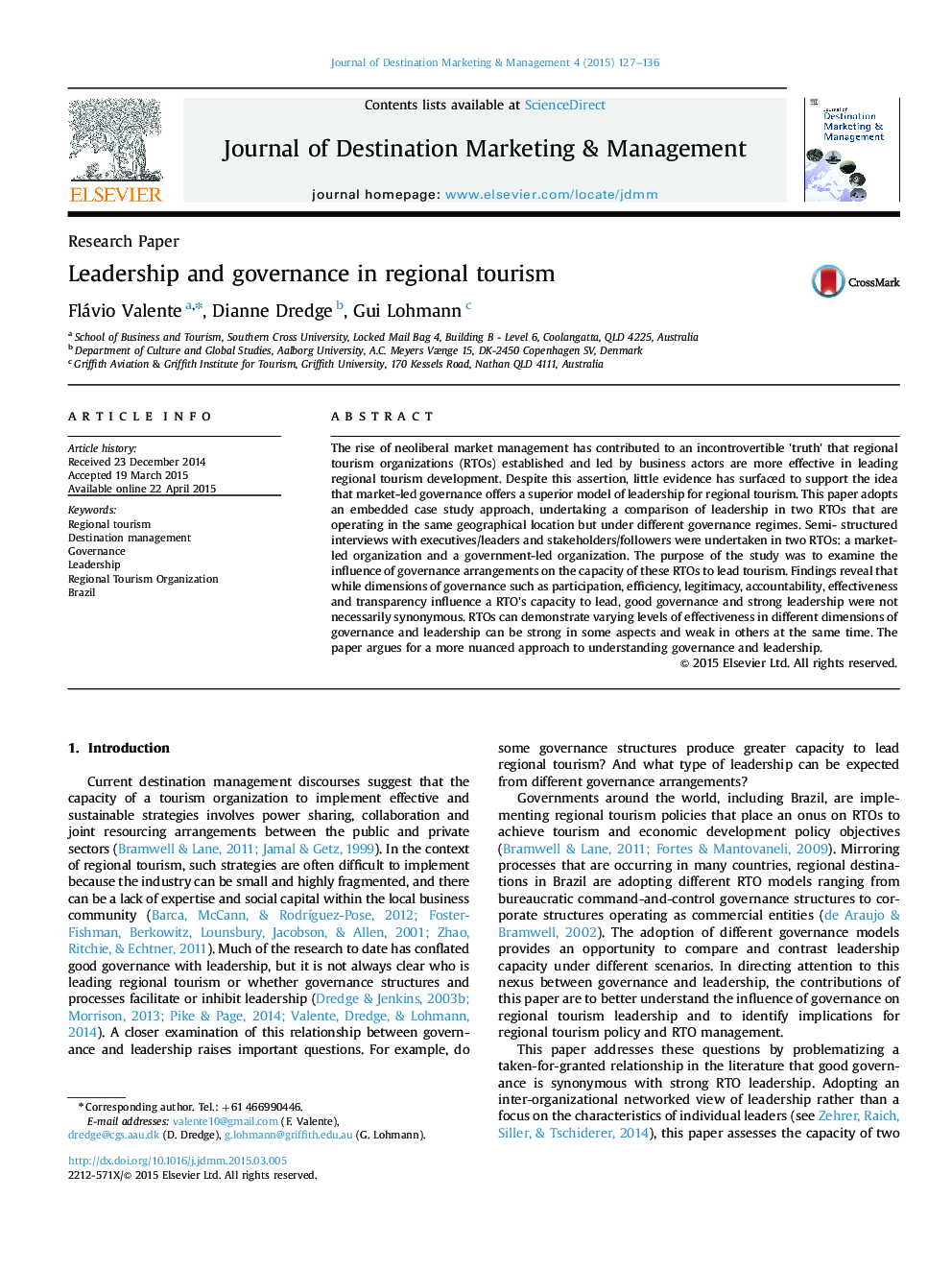| Article ID | Journal | Published Year | Pages | File Type |
|---|---|---|---|---|
| 1011102 | Journal of Destination Marketing & Management | 2015 | 10 Pages |
•We explore the relationship between leadership and tourism governance.•An embedded comparative case study is undertaken of two Brazilian regional tourism organizations.•Public- sector and private- sector- led organizations have different leadership capacities.•Distributed leadership is shown to be important.
The rise of neoliberal market management has contributed to an incontrovertible 'truth' that regional tourism organizations (RTOs) established and led by business actors are more effective in leading regional tourism development. Despite this assertion, little evidence has surfaced to support the idea that market-led governance offers a superior model of leadership for regional tourism. This paper adopts an embedded case study approach, undertaking a comparison of leadership in two RTOs that are operating in the same geographical location but under different governance regimes. Semi- structured interviews with executives/leaders and stakeholders/followers were undertaken in two RTOs: a market-led organization and a government-led organization. The purpose of the study was to examine the influence of governance arrangements on the capacity of these RTOs to lead tourism. Findings reveal that while dimensions of governance such as participation, efficiency, legitimacy, accountability, effectiveness and transparency influence a RTO׳s capacity to lead, good governance and strong leadership were not necessarily synonymous. RTOs can demonstrate varying levels of effectiveness in different dimensions of governance and leadership can be strong in some aspects and weak in others at the same time. The paper argues for a more nuanced approach to understanding governance and leadership.
